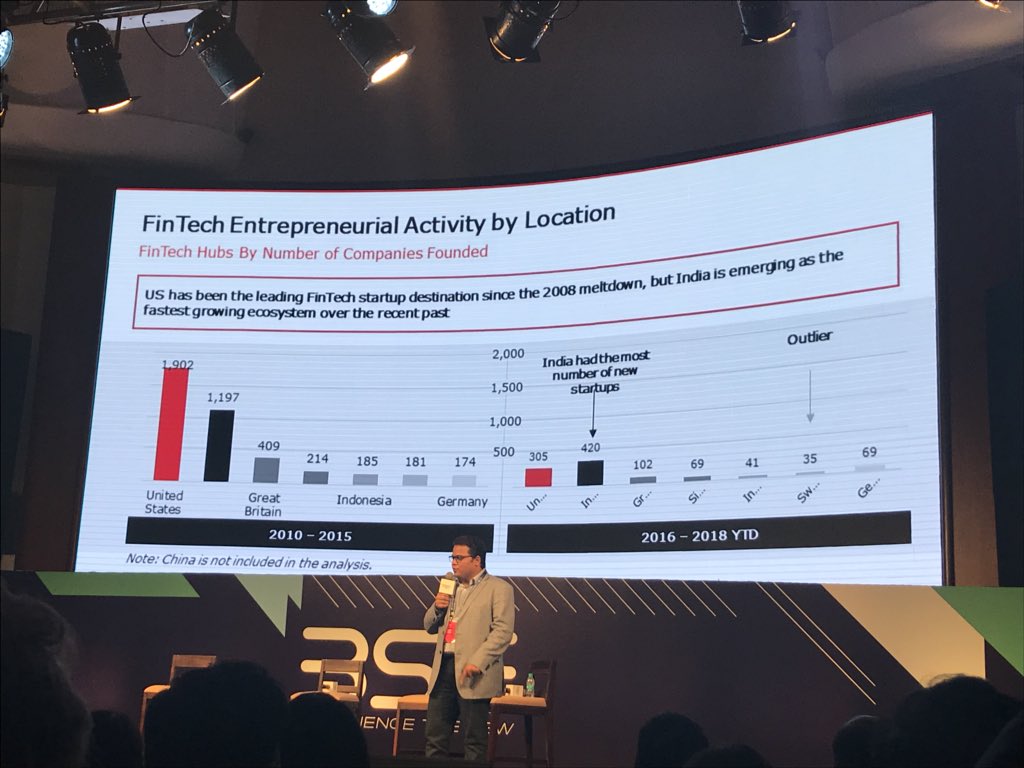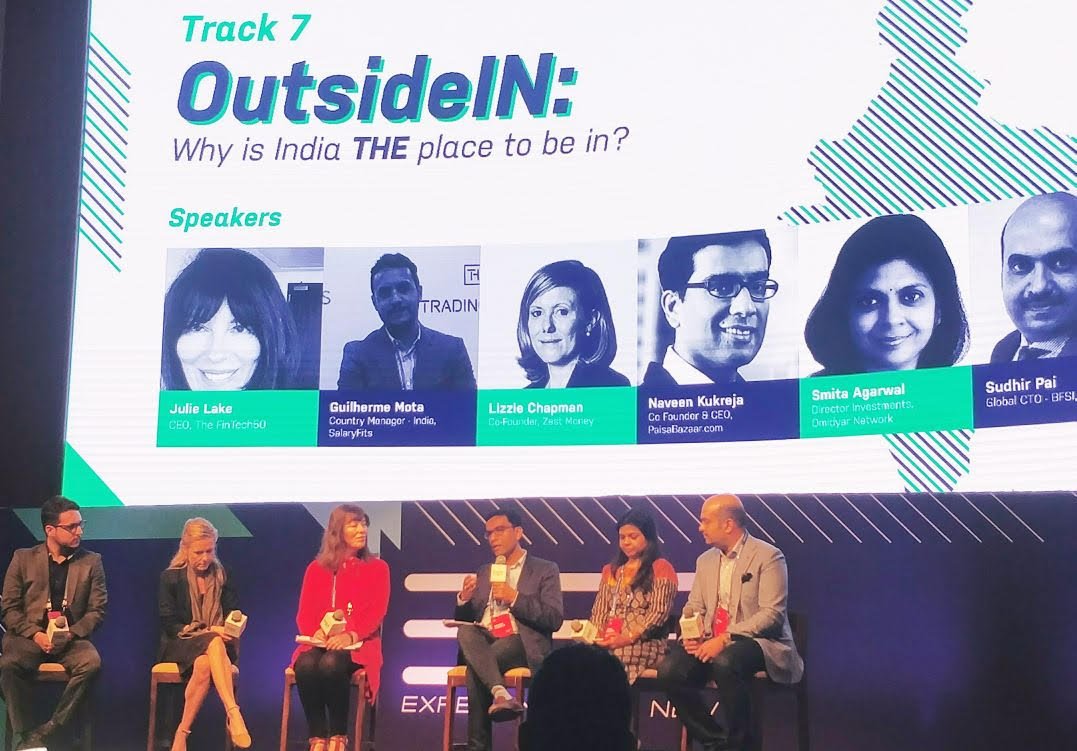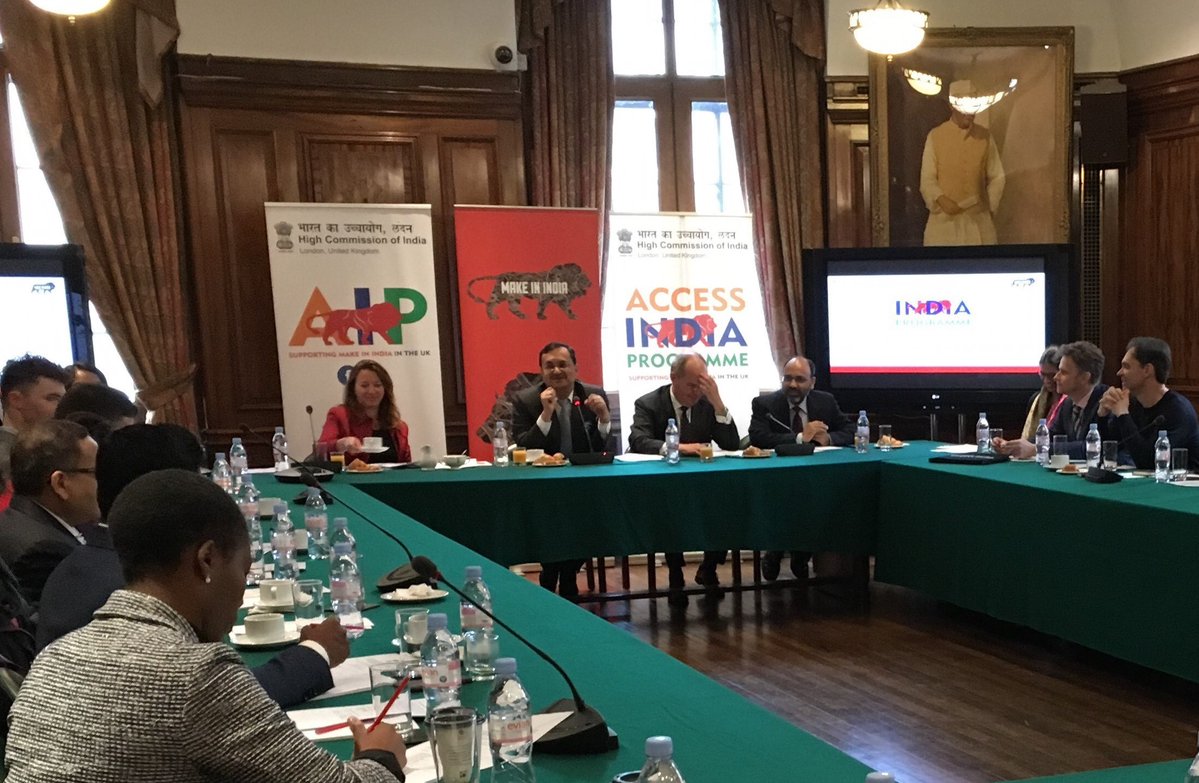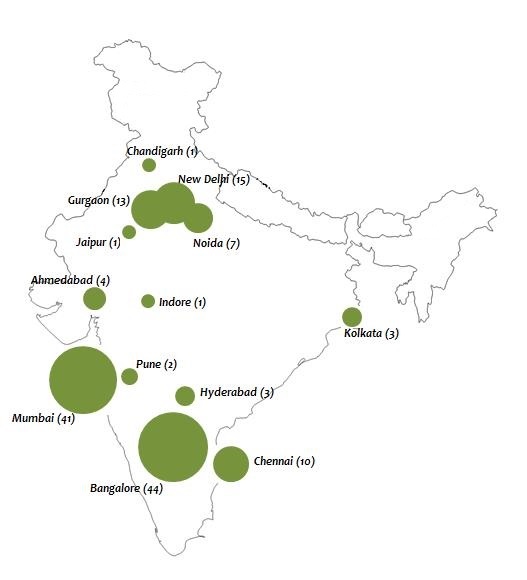Fintech start-ups from India converged in the financial capital Mumbai on Tuesday, joined by financial technology firms from UK looking for opportunities to invest and share their expertise with the Indian counterparts.
The three-day conclave 'Fintergrate Zone 2018' hashtagged FZ18 kick-started in Mumbai with technology leaders from both countries sharing their experience and expertise on the way the people transact on B2B and B2C space today and the way forward.
"The future of Indian FinTech is bright and the UK is a natural partner. We are proud to partner with @FintegrateZone for #FZ18 taking place in Mumbai 27 February-1 March. To explore opportunities for collaboration visit fintegrate.zone," UK High Commission to India said in a tweet.
India is the fastest emerging fintech ecosystem globally. As many as 420 fintech start-ups came up since 2016 in India, leaving behind the US at 305.
At the conference, Paisa Bazaar CEO and Co-founder Naveen Kukreja spoke on why India is the best place to invest in fintech, but cautioned, "It is not easy for any company to operate from outside India. Having a flowery view of India won’t help. Come on ground like Lizzie Chapman, be patient and execute the processes.”
"Opportunities are plenty, however, the effort required to tap them is often underestimated," said Abhijit Remanan from Capgemini.
Calling India a hotbed for innovation, Smita Aggarwal from Omidyar Network said Indian entrepreneurs no more copy models that worked in the West. They have their own models to execute.
Sujith Narayanan from Google Tez urged fintech companies to incentivise small merchants and build their trust in digital payments, stating, “We need to push small merchants to use unified payment interface."
The stage for the Mumbai conference was set by the Indian High Commission in London and City of London Corporation last week with a roundtable of UK fintech firms discussing ways to engage India – a fast emerging market in post-demonitisation era and Digital India push by the Indian Government.
The initiative, the first of its kind in the UK, was aimed at attracting investments from British SMEs into India, as part of the ‘Make in India’ strategy of Government of India.
“The roundtable marks the start of what I’m sure will be a long and prosperous partnership between the City of London Corporation and High Commission of India and should go some way to helping UK fintechs expand their operations in India,” the City of London Corporation’s Special Adviser for Asia Sherry Madera said.
High Commissioner YK Sinha cited a report by the National Association of Software and Services Companies (Nasscom) which said the Indian fintech software market is forecasted to touch USD 2.4 billion by 2020 from the current USD 1.2 billion.
"This provides a great opportunity to UK fintech firms to collaborate in India’s quest to transform the lives of 1.2 billion people," Sinha said.
Earlier in January, the City of London Corporation in its report 'Asia as a Financial Services Partner for London' noted that India is a dominant force in the financial technology sector globally with 29 per cent annual returns on investments.
"Annual returns on fintech investment in India are highest worldwide at 29 per cent, compared to Asia's average of 25 per cent and the global 20 per cent standard… In 2017, a demonetisation wave in India led to a 1,000% increase in demand for digital transaction technologies," the report said.
A study commissioned by the British High Commission 'Fintech in India' last year drew a roadmap how the UK with its proven experience and expertise can support the development of a larger, more effective, and inclusive fintech sector in India.
So far, the Indian fintech sector is largely a story of payments with much of the action confined to B2B space.
Most of the competition in fintech today remains for the wealthier customer base of urban, salaried and middle class populations. However, the people with most to gain from fintech in India are likely to be the people with currently little or no access to financial services.
On the policy front, Jan-Dhan Yojana and Digital India along with the unified payment interface and other interoperability initiatives are providing an excellent long term foundation for fintech businesses.
India already has strong innovation systems that are supporting fintech’s growth but more can be done to build the enablers of an effective ecosystem, the study pointed out. There is a dearth of incubation facilities for early stage fintech ideas, in particular, those looking to serve poorer markets.
Though linkages do exist to universities and academia for a good pipeline of ideas, these can be strengthened. While there are a number of investors looking at the sector, there is a lack of high-quality investors with the knowledge and expertise to add significant value through mentorship and advisory services.
Industry coordination is also weak and nobody is effectively playing the role of an industry body, as is played by 'Innovate Finance' in the UK. This weakens the networks and the collaboration that can be important drivers of innovation and growth.







